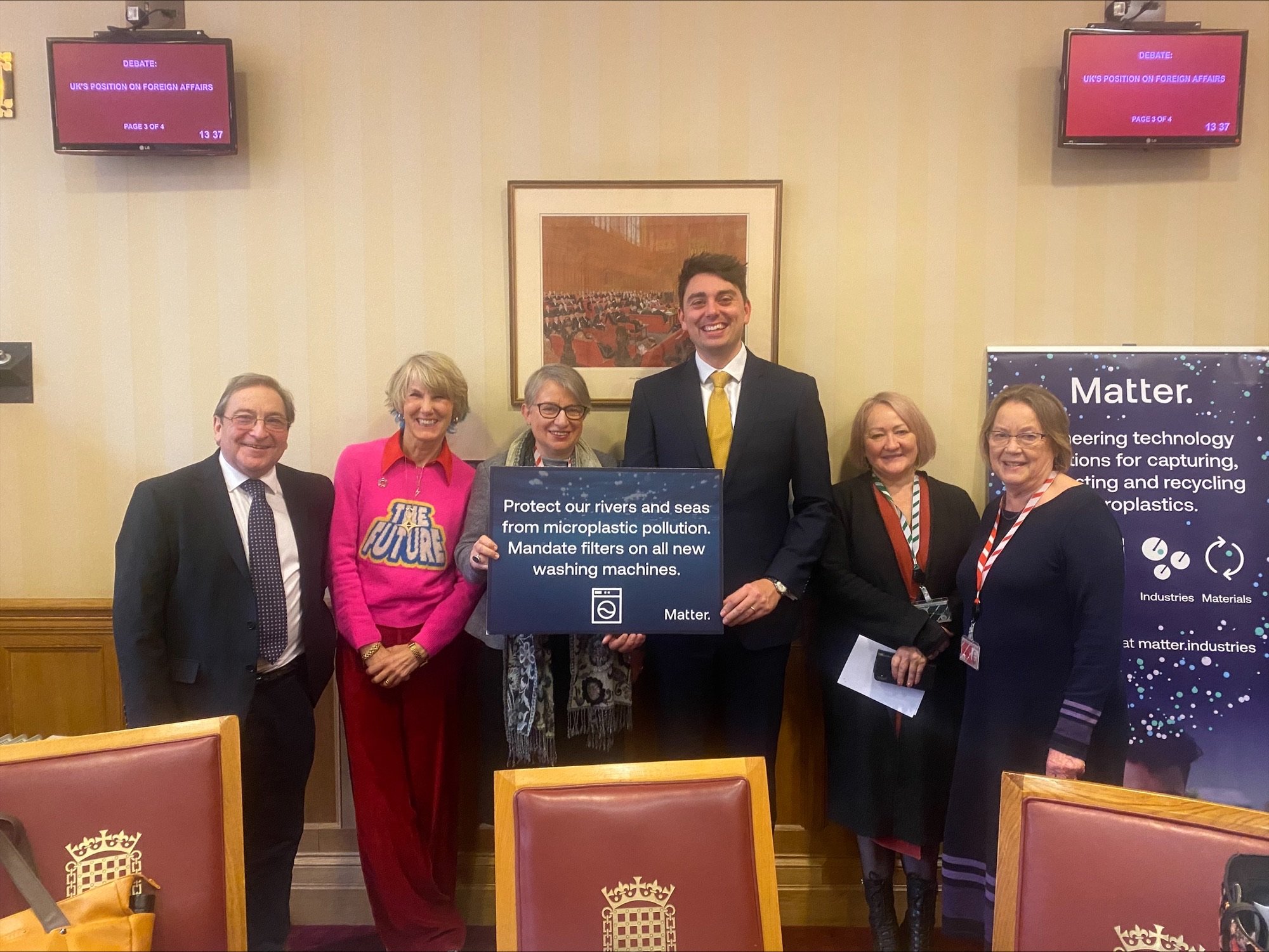MPs urge action to end “toxic flow” of microplastics into UK waterways
CROSS-PARTY MPs and campaigners have called on the Government to urgently address the “toxic flow” of microplastics into the UK’s rivers and seas.
Speaking at a House of Lords roundtable on Tuesday 5th March, former Green Party leader Baroness Natalie Bennett highlighted the urgent need “to protect human and environmental health”.
She added “there are millions of people across the country that are behind us.”
It is thought up to 700,000 microfibres are released from clothes into UK waterways during the average household washing machine cycle.[1]
Campaigners have blasted ministers’ inaction, arguing current bans on single-use cutlery and cosmetic microbeads are “a drop in the ocean” in the fight against the increasing global plastics threat.
Other senior politicians at the event included Labour Shadow Climate Change and Net Zero Minister Kerry McCarthy MP; Environmental Audit Committee Chair Philip Dunne MP; and Liberal Democrat environment spokesperson Baroness Cathy Bakewell.
The discussion was hosted by Matter, an environmental innovation company developing technological solutions to tackle Britain’s microplastics crisis. Chief Executive Adam Root cited these particles had even been found in human blood.
There are an estimated 171 trillion tiny pieces of plastic floating across the world’s oceans, having an untold effect on the health of humans and the planet, he said.[2]
One-third (35 per cent) of these originate from textiles, according to the International Union for Conservation of Nature data.[3]
Hope is growing among campaigners that a filter mandate could be introduced after the next general election.
The calls follow an open letter[1] signed by more than 50 MPs and campaigners, urging ministers to join European Union nations in setting out tougher restrictions.
Adam Root, Founder and Chief Executive of Matter, said:
“With every single household clothes wash, up to a gram of microplastics are released into the UK’s wastewater network, ending up in our natural waterways and coastlines.
“With a general election fast approaching, politicians from all parties should listen carefully to today’s cross-party calls and act quickly to end the toxic flow of microplastics into our rivers and seas”
Baroness Natalie Bennett, former Green Party leader, said:
“We have an increasingly plastic-choked planet and a significant amount of that is coming from the clothing industry in the form of microplastics. This is a dual environmental health and public health risk, requiring bold action from policymakers.
“There is an urgent need to protect human and environmental health and follow the progressive policymaking of our neighbours in the European Union whose ambition we ought to match.”
Sian Sutherland, Co-Founder of A Plastic Planet and the Plastic Health Council, said:
“Why are we even having this debate when the solutions are staring right at us? The public desperately want action on plastic, but legislation is the only way to help our environment.
“The Government claim to have acted on plastic pollution, but their current bans on single-use cutlery and cosmetic microbeads are a drop in the ocean for what is required to properly tackle Britain’s plastic waste crisis.
“We require not only a microplastic filter mandate on all new washing machines, but decisive action to end our unsustainable reliance on plastic altogether. We simply cannot afford to wait any longer.”
[1] Napper I. and Thompson C. (2016) Release of synthetic microplastic plastic fibres from domestic washing machines: Effects of fabric type and washing conditions
[2] Napper I. and Thompson C. (2016) Release of synthetic microplastic plastic fibres from domestic washing machines: Effects of fabric type and washing conditions
[3] Eriksen M. et al. (2023) A growing plastic smog, now estimated to be over 170 trillion plastic particles afloat in the world’s oceans - Urgent solutions required
[4] https://www.telegraph.co.uk/opinion/2023/11/01/letters-pursuing-lockdown-without-a-cost-benefit-analysis/

